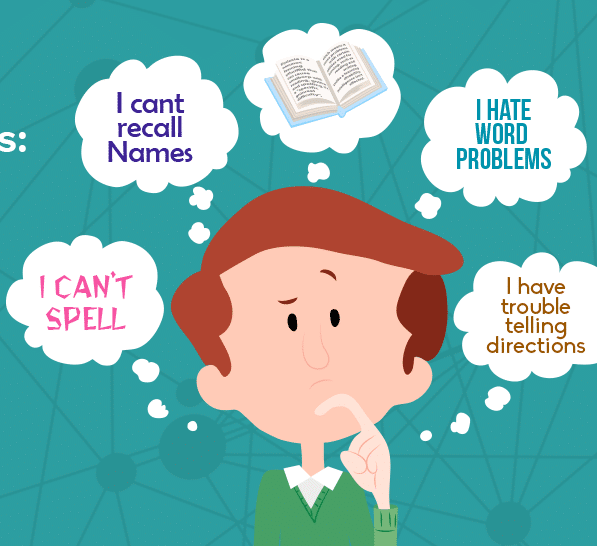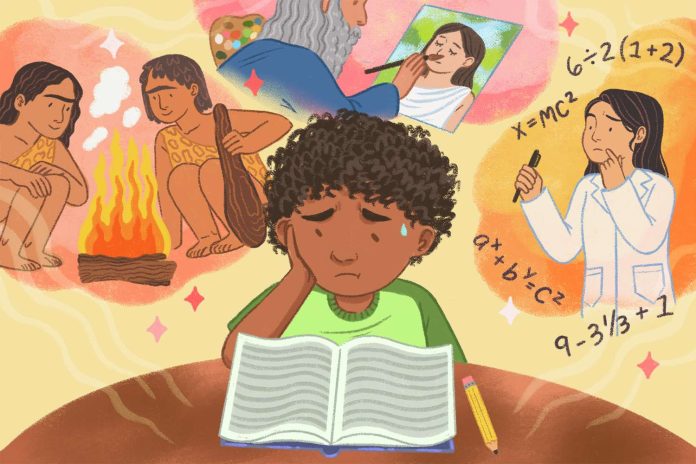In the bustling city of Lagos lived a young protagonist, Raymond, whose journey of triumph over dyslexia is nothing short of inspiring.
Ray’s enthusiasm for learning was evident from the start, but as the years passed, his once filled excitement for school waned as reading and writing became tough challenges, and the joy that once filled the young heart was swamped by frustration and self-doubt.
He was suffering from dyslexia, a learning disorder that made it difficult to recognize letters and decode sentences.
The sight of their child fumbling with books was heart-breaking for Ray’s parents as they quickly established themselves as his unwavering support system, devoting endless hours to sit by him and help him navigate the confusing world of letters and words.
Ray faced challenges in school that his peers did not understand. Simple tasks like spelling words or reading aloud felt like a dangerous journey.
His struggle to overcome dyslexia however began with the help of dedicated teachers and specialised resources. Slowly, the letters on the page transformed from adversaries into allies, and the world of reading and writing opened up.
As Ray’s confidence grew, they realized that his story could serve as a beacon of hope for others facing similar challenges.
dyslexia is more common in boys, and it runs in families
What once seemed insurmountable had become stepping stones toward self-discovery and strength. Ray’s struggles had shaped their character, turning them into advocates for others with learning differences.
Through their experience, his parents and teachers have cultivated a sense of empathy and understanding, becoming mentors and support for others facing dyslexia’s challenges.
As a result of their experience, Ray’s parents and teachers have developed a sense of empathy and understanding, becoming mentors and supporters for those suffering dyslexia’s problems.

What exactly is dyslexia?
Dyslexia is a learning disorder that affects a person’s ability to read, spell and write, experts say. It is a neurodevelopmental disorder that affects how the brain functions.
Individuals with dyslexia may struggle to recognise letters, decode words, and comprehend text.
The International Dyslexia Association says the condition affects 5-10% of the population, implying that millions of people worldwide suffer from this disorder. IDA also revealed that dyslexia is more common in boys than in girls, and it runs in families.
Dyslexia, also known as a reading disorder, is caused by individual differences in parts of the brain that process language, according to the Mayo Clinic.
The Clinic stated that dyslexia is not due to problems with intelligence, hearing, or vision impairments, and that most children with the disorder may excel in school with tutoring or a specialised education programme while emotional support is also very crucial.

Symptoms
It may be difficult to detect dyslexia before the child reaches school, however some early warning signals may exist.
When the child reaches the age of school, the teacher may be the first to identify a problem. The problem often becomes apparent as a child begins to learn to read.
Early warning signs that a young kid may be dyslexic include:
- Late talking
- Slowly learning new words
- Problems in correctly forming words, such as reversing sounds in words or confusing words that sound alike
- Difficulties remembering or naming letters, numbers, or colours
- Difficulties remembering nursery rhymes or playing rhyming games
When your child starts school, dyslexia symptoms such as reading may become more obvious. The symptoms include:
- reading well below the expected level for age
- problems processing and understanding what is heard
- difficulty finding the right word or forming answers to questions
- difficulties remembering the sequence of things
- difficulty seeing and occasionally hearing similarities and differences in letters and words inability to sound out the pronunciation of an unfamiliar word
- difficulty spelling and avoiding activities that involve reading, among others.
Adults and teenagers
Dyslexia symptoms in teens and adults are similar to those in children. Among the most prevalent dyslexia symptoms in teenagers and adults are:
- Difficulty reading, including aloud reading
- Time-consuming and labor-intensive reading and writing
- Spelling issues
- Avoiding reading-related activities
- Problems pronouncing names or words, or recovering words
- Taking an unusually long time to complete reading or writing tasks
- Difficulty summarising a story
- Difficulty learning a foreign language
- Difficulty doing math word problems
 When to see a doctor
When to see a doctor
While most children are ready to learn to read by kindergarten or first grade, children with dyslexia frequently have trouble learning to read by that time.
Experts recommend that you speak with your health care provider if your child’s reading level is below what’s expected for your child’s age or if you notice other signs of dyslexia.
When dyslexia goes undiagnosed and untreated, childhood reading difficulties continue into adulthood. While there is no cure for dyslexia, early assessment and intervention result in the best outcome.
Sometimes, dyslexia goes undiagnosed for years and isn’t recognized until adulthood.
Effects of dyslexia
Dyslexia can have a substantial impact on an individual’s academic and professional achievement according to the International Dyslexia Association.
Also, dyslexic children frequently struggle in school, particularly with reading and writing. They may have difficulty understanding instructions, following directions, and complete assignments. As a result, individuals may feel frustrated, anxious, and overwhelmed.
It is estimated that up to 80percent of children with learning disorders, including dyslexia, are not identified until they reach high school, despite the fact that early intervention is critical for better academic performance.
Adults with dyslexia may suffer in the workplace as well. They may struggle with tasks requiring reading, writing, and spelling.
They may also struggle with time management, organisation, and following directions. As a result, they may perform poorly at work, have low self-esteem, and find it difficult to advance in their careers.
Dyslexia is a condition that lasts a lifetime, even into adulthood but with the right help and accommodations, sufferers can achieve academic and professional success.


